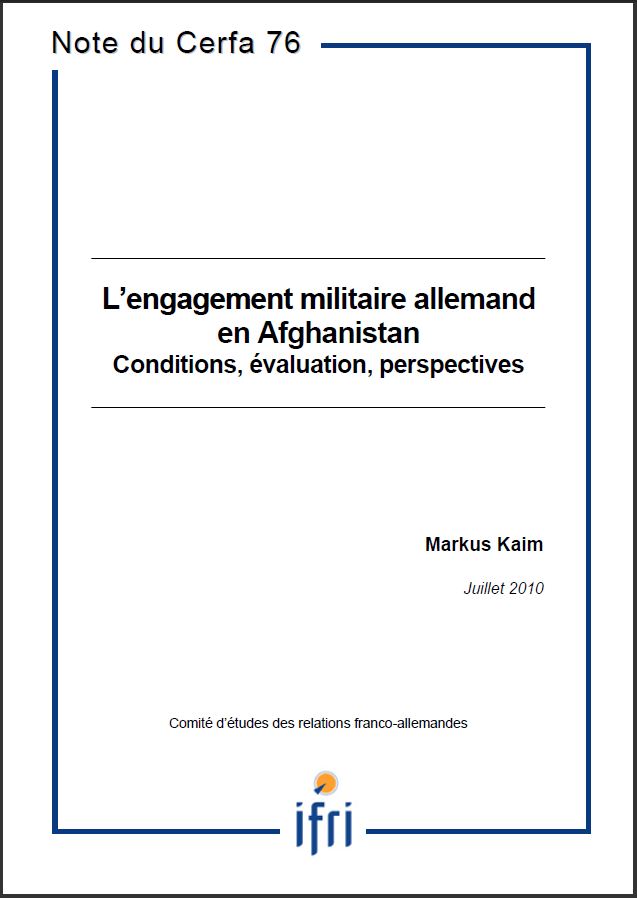German Military Engagement in Afghanistan: Conditions, Assessment, Outlook

Since the beginning of 2010, German authorities have become conscious of the fact that they cannot continue to maintain the Bundeswehr’s involvement in Afghanistan with a majority of the German population opposing it. It is clearly understood that the federal government and the Bundestag will adhere to President Obama’s plans to gradually withdraw national troops from ISAF, starting in the summer of 2011, and to hand over complete control of the country’s security to Afghani authorities.
For too long, the vague wording of objectives has been predominant within Germany’s political elite (“to struggle against Islamic terrorism”, “democratize Afghanistan,” etc…). It was not until these last few months that the federal government elaborated on quantifiable criteria, which must allow permanent control over the progress and efficacy of ISAF"s mission throughout the remaining three to four years.
Markus Kaim is Head of Research Division International Security of the Stiftung Wissenschaft und Politik, the German Institute for International and Security Affairs in Berlin.
This paper is published in French – L’engagement militaire allemande en Afghanistan : conditions, évaluation, perspectives
This paper is also published in German – Deutschland Einsatz in Afghanistan : Die Sicherheitspolitische Dimension
.










